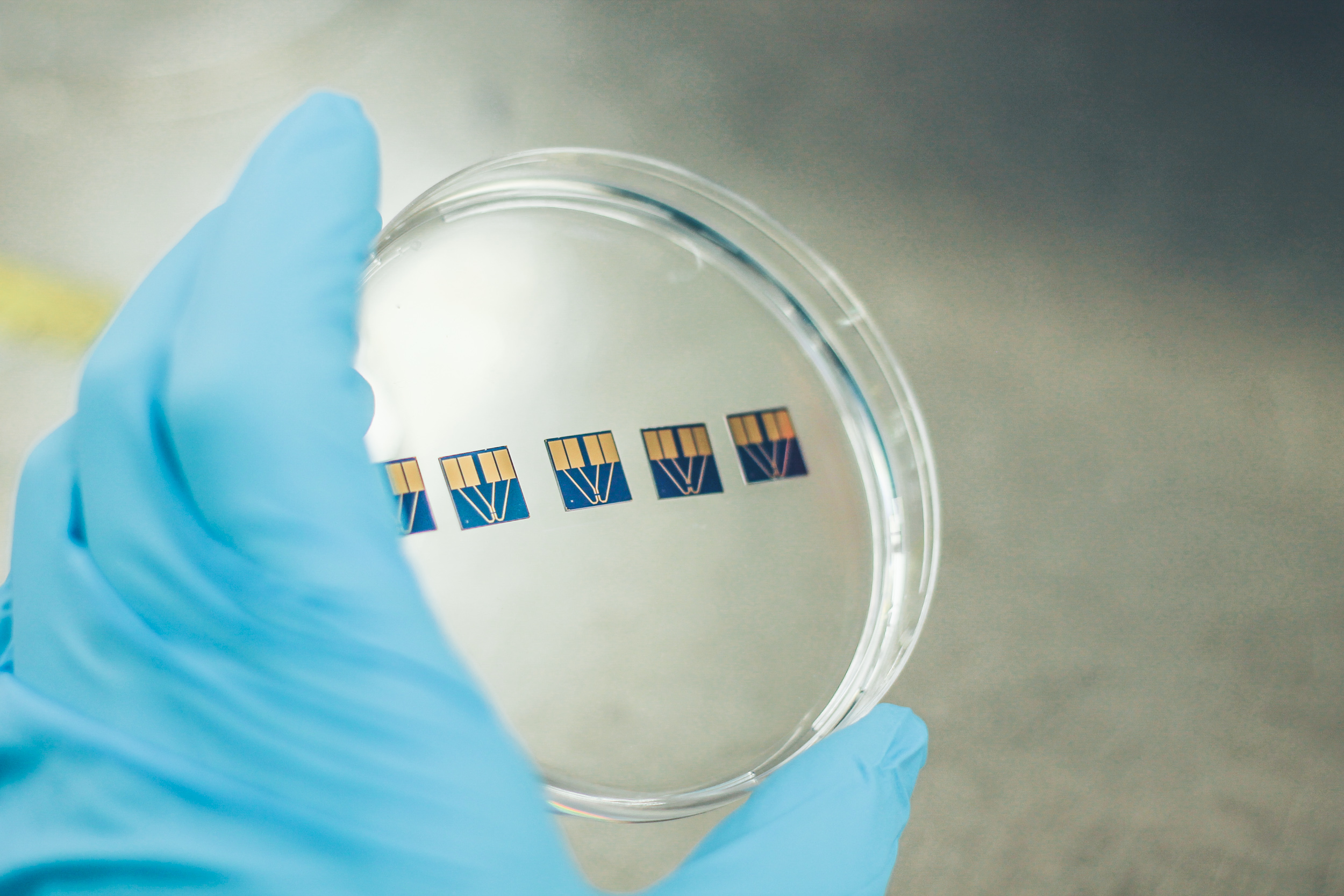
Dr. Ruizhi Wang from the Centre for Advanced Photonics and Electronics, has been awarded a Royal Academy of Engineering Enterprise Fellowship
This technology will not only change how drug discovery researchers operate today, but could also bring a revolution to medical diagnostics, where this technology has the power to fundamentally alter where patients are being tested - moving testing from labs and hospitals to physicians’ offices, pharmacies and even peoples’ homes.”
Dr. Ruizhi Wang
Ruizhi is based at The Centre for Advanced Photonics and Electronics (CAPE) which is a joint partnership between the University of Cambridge and a number of strategic companies of international importance in the supply chain for the photonics and electronics industries. Ruizhi's expertise lies in the large-scale and industrial compatible manufacturing of 2D materials.
The support offered by the Royal Academy of Engineering Enterprise Fellowship will enable Ruizhi to further establish and grow his spin-out company HexagonFab which is using 2D materials to develop next-generation biosensors for industrial and medical applications. The first sensor will offer researchers in drug discovery the ability to characterise proteins and understand biomolecular interactions with a handheld device in an extremely affordable way.
The development for the first product is currently underway and first pilot projects are expected to start by early 2020.
Ruizhi and his spin-off company is supported by the Department of Engineering/CAPE and Cambridge Enterprise.
Ruizhi: “This material and these sensors have the potential to fundamentally change how many biological analyses are done today. These type of sensors offer lab-like sensitivity in a handheld device that can measure in real-time - something never seen before in such a small device and in such an affordable way”.
“This will not only change how drug discovery researchers operate today, but could also bring a revolution to medical diagnostics, where this technology has the power to fundamentally alter where patients are being tested - moving testing from labs and hospitals to physicians’ offices, pharmacies and even peoples’ homes.”

The photo shows 5 HexagonFab sensor prototypes. These chips are made in the cleanroom facilities of the Electrical Engineering Division via Lithography and various steps of thin film deposition.
Ruizhi and his team have also been awarded the “Emerging Technologies Award” by the Royal Society of Chemistry in 2018, Merck’s “Displaying Futures Award”, as well as a grant from InnovateUK. Together with the Fellowship from RAEng these awards and grants have significantly helped speed up the product development, through attracting more people to the team and raising interest among potential customers. Moreover, the mentorship and coaching provided have helped to navigate the complexities of moving a technology out of the lab and turning it into a business.

